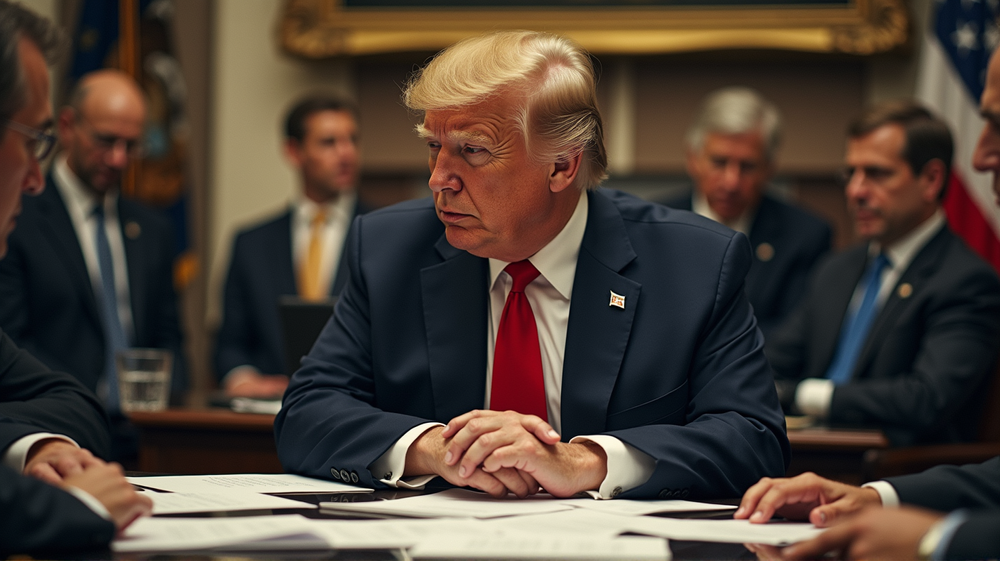In an era where diplomacy often unfolds amid formal tables of negotiation and carefully worded communiques, President Trump has embarked on a bold and unconventional path. Through a singular approach to reshaping international trade agreements, Trump has taken to sending form letters to foreign leaders—a tactic echoing his distinct style, one that raises eyebrows and questions across the globe.
The Unconventional Letters
President Trump’s tariff narrative started to unfold as a series of oddly distinctive letters, each addressed not just as a bureaucratic courtesy but wielding the might of economic consequences. With a touch of Trump’s signature social media flair, these documents intertwine capitals and typographical quirks, announcing tariff changes tailored to each recipient. The letters proceed with a greeting, a clear grievance, a heavy threat of increased tariffs, and a door hinging precariously open for diplomatic negotiation.
“I understand time is precious,” Trump remarked during a Cabinet meeting, “So, letters are the way forward in a world with 200 voices seeking a meeting.”
Stirring Up the Trade Waters
The announcements within these letters aren’t idle threats—Trump notably escalated trade tensions by slinging tariffs that reached up to 50% on Brazilian goods. As leaders received these letters, laden with economic implications heavier than their envelopes, what followed was a landscape scattered with mixed reactions. As noted in AP News, some nations like Canada took a defensive posture, steadfast in their economic stance as the August 1 deadline loomed over them. For Brazilians, President Lula voiced a resounding dissent, hinting at counter-tariffs to restore balance.
The Path to Podium Politics
Trump’s letter strategy, while unconventional, underscores his viewpoint: negotiation is king. As a crisis-prone stage unfolds, this innovative form-letter diplomacy may offer critical insights into steering uncharted waters. A letter from Trump, for many leaders, now represents a unique form of engagement—a cue that a deal might be on the horizon, albeit under the glaring spotlight of tariff talks.
Echoes of Diplomacy
The reactions have certainly been divisive. Where Canadian leaders display strategic restraint, leaders like Bolsonaro contest with retaliatory rhetoric. This case not only challenges tradition but becomes a poignant case study of modernizing diplomatic channels—trading handshakes for inked letters with economic heft. As anxious eyes trace these correspondences, the world watches eagerly to see if negotiations find footing upon this bold and experimental paper trail.
As stated in AP News, only time will tell if President Trump’s audacious approach bursts the trade dam or reframes a new, letter-bound era of negotiation.












